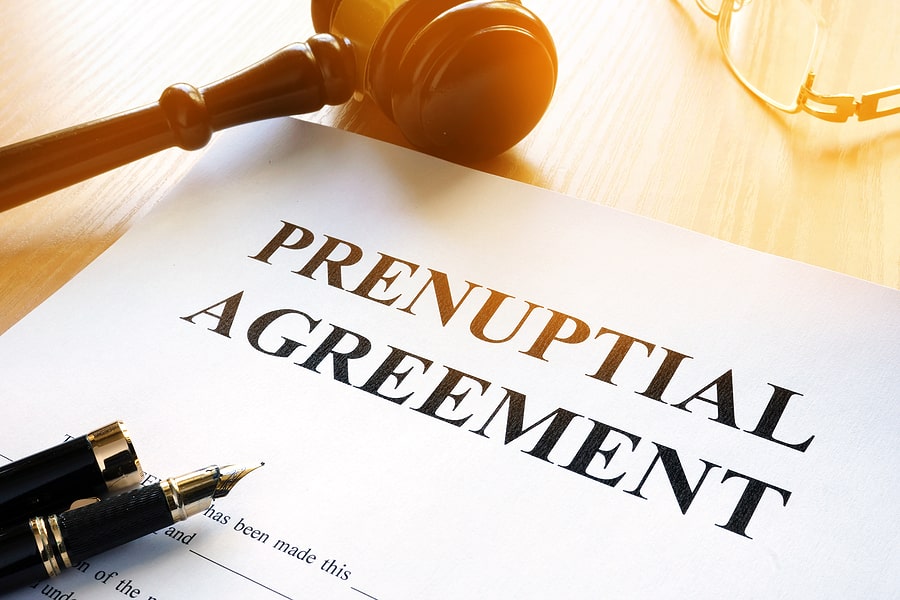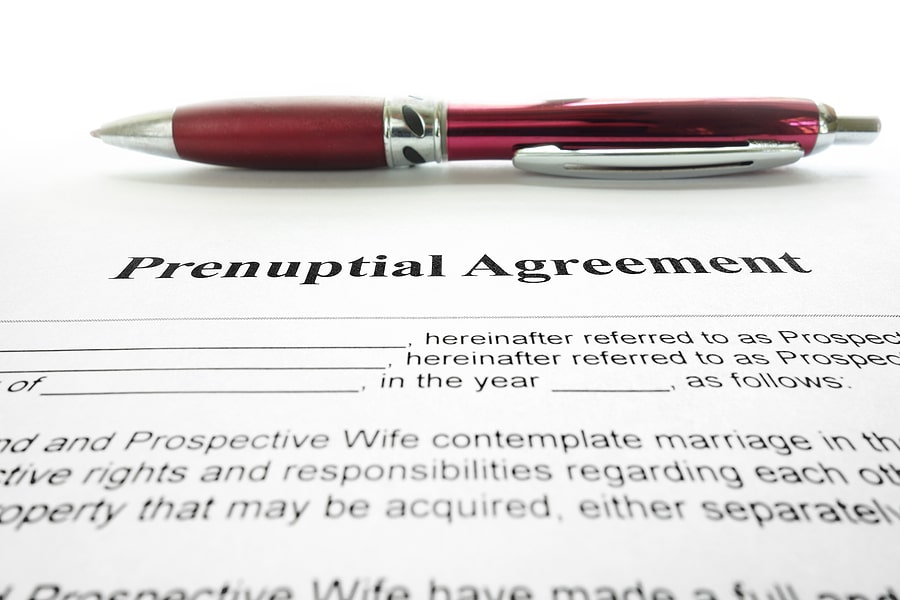When writing a prenup in the UK, there is no legal rule on what you can include. You can divide up any assets that you see fit, provided you both agree . But if you are unsure where to start, we have compiled a list of things that commonly appear in prenups.
- Property
- Savings and debts
- Stocks and shares
- Business
- Inheritance
- Belongings
- Childcare
- Spousal maintenance
Property
Many married couples own property, whether that be a family home, usually the family home. After the breakdown of the marriage you will have to decide who gets to keep or live in this property. A prenup can be useful for establishing early on how you will divide ownership of your shared property if you get divorced.Remember that even if the property is only under one name, as a married couple you legally both own it. Therefore, in the event of a divorce, being the sole name on the property will not stop the court from dividing ownership of the property between both you and your partner. Having a prenup is the best way to ensure property is divided in your ideal way.
Savings and debts
Most people will have savings. As a married couple you may have a joint bank account, including joint savings. This joint account may exist in addition to your own individual savings accounts that you made before or during the marriage. In the event of a divorce the Court may decide to divide up all savings between you both, regardless of whose name they are under.A prenup can be useful to arrange ahead of time if you each wish to keep the savings you have made in your own name and how you will divide up the savings you share.
The same goes for debts. Though more rare, any debts you incurred on your own before or during the marriage, such as credit card payments, may end up divided by the court along with debts you share, such as mortgages and other loans. So, it is good to make an agreement on how you would ideally like these debts to be divided.
Stocks and shares
Similarly, each of you may have invested in stocks or shares in a company, either individually or as a couple. Again, you may wish to consider whether these investments will be split equally between you in the event of a divorce or if they should go to the person that initially payed for them.Business
Business interests can be an important aspect of a prenuptial agreement. If you own a business, no doubt you’ve put a lot of time and effort into building it up and making it a success. After all that hard work, you don’t want to lose control of it during divorce proceedings.Unfortunately, a court may decide in the event of a divorce that shares in your business should be divided 50/50 between you and your spouse. However in a prenup you can take each other’s involvement into account and divide the business accordingly.
If you started to business on your own before you got married (or even before you met), you may feel that the business is yours – and so you should keep all or a majority of its shares. For businesses started together, an equal divide may be fairer. However, one of you may have more involvement with the day-to-day running of the business, and believe you have a greater claim to ownership.
To prevent future disputes, it’s best to sign a written agreement while you have clear heads and with nothing on the line.
Inheritance
Inheritance may be a key issue to discuss when it comes to a post marriage division. Any wealth, possessions or heirlooms left to you by a family member or friend after their passing are usually very personal. So, arguing about how to divide them between you can be quite sensitive.Making a prenup is a useful way of thinking ahead of time about how any potential inheritance should be split if you get divorced. You can consider if the inheritance was left specifically for one of you or if it was left to you both. If so, would you split it equally or would it depend on which side of the family the inheritance came from?
Belongings
Though money in its many forms is an important asset, don’t ignore your physical possessions. There could be items that you acquired together, or those owned before you married, that you can’t split in half should you end up separating.Who would keep the family car? The portrait in the hallway? The antique grandfather clock? If they mean something to you, then you’d probably like to keep hold of them regardless of how your relationship goes. In that case, ring-fence them with a prenup or postnup.
Spousal Maintenance
After a divorce, many couples will end up paying spousal maintenance. This is a monthly sum paid to a former partner over a certain period of time. It’s a way of ensuring that the partner receiving the money can keep up with their finances, since their income or expenditure may have significantly changed following the divorce.Though it’s not something you necessarily need to consider until after a potential divorce, it’s worth noting whether one party will likely need spousal maintenance if a breakup occurs. For example, one of you may have a low-income job, or no job at all, and is financially reliant on the other. Including spousal maintenance in a prenup helps you avoid any financial struggles in the future, as you know you will get support if ever you separate and need new income.
Childcare
Perhaps the most important thing to think about with a potential future divorce is your children. Whether you have children or would like some in the future, it is important to consider what their lives would be like if you ever separated. Your children aren’t assets, of course, but must make sure your division of assets would allow you or your partner to take care of your child’s needs as a single parent.It is important to remember that a prenup/postnup is not legally binding in England and Wales (it is in Scotland); so if a court feels that your prenup doesn’t allow enough financial support for your children, they can elect to ignore it.
You also cannot make arrangements for who gets custody of a child in a prenup, as you have no way of knowing what will be in the best interest of the child at the time a potential divorce takes place. This means you cannot include child maintenance arrangements either.
There are many things to consider when writing a prenup. While you do not have to include everything here in your agreement, it is important to take stock of which assets you have, and those that are important to you both as an individual and as a couple – although hopefully you’ll never need to divide them up.





